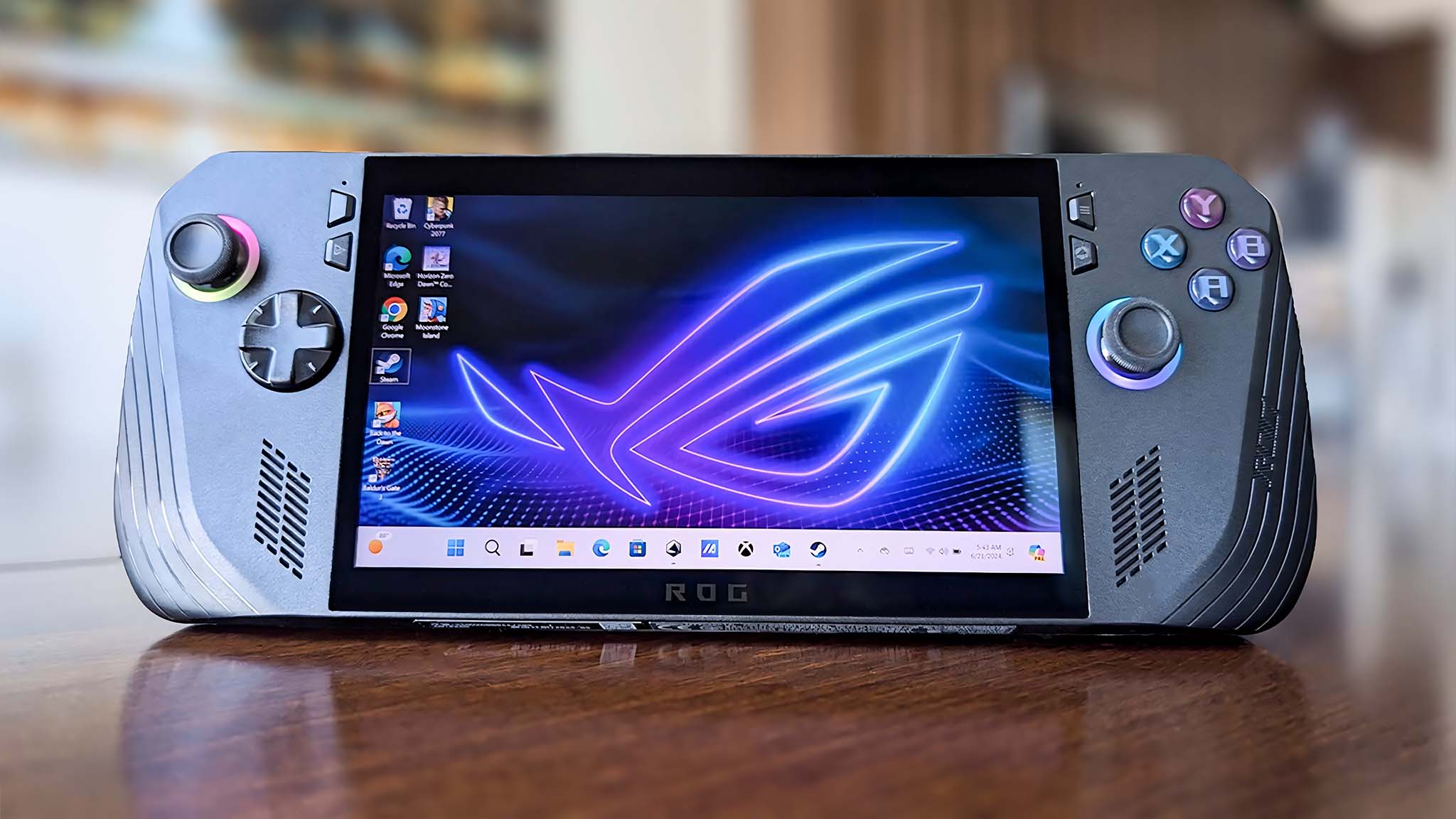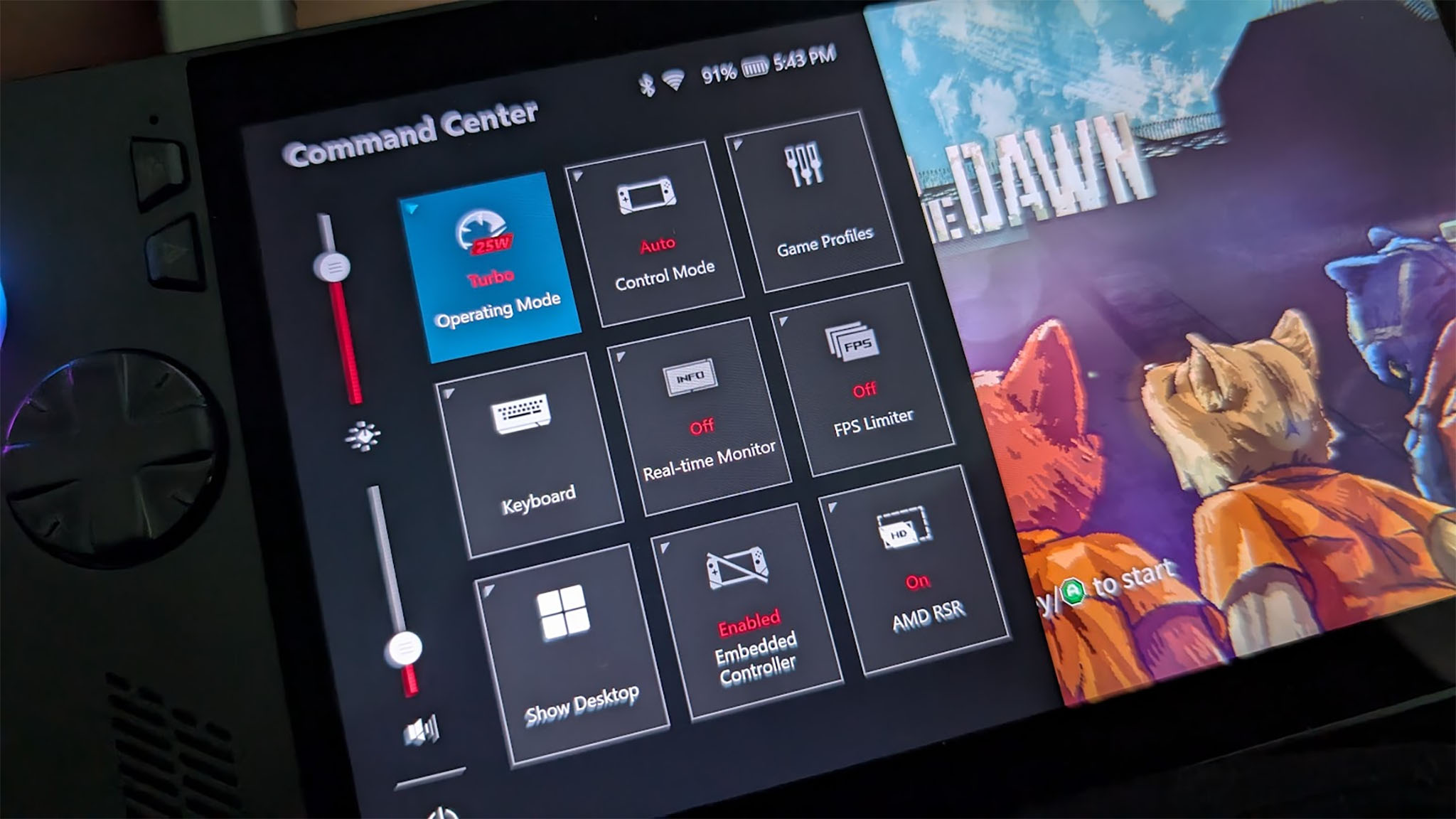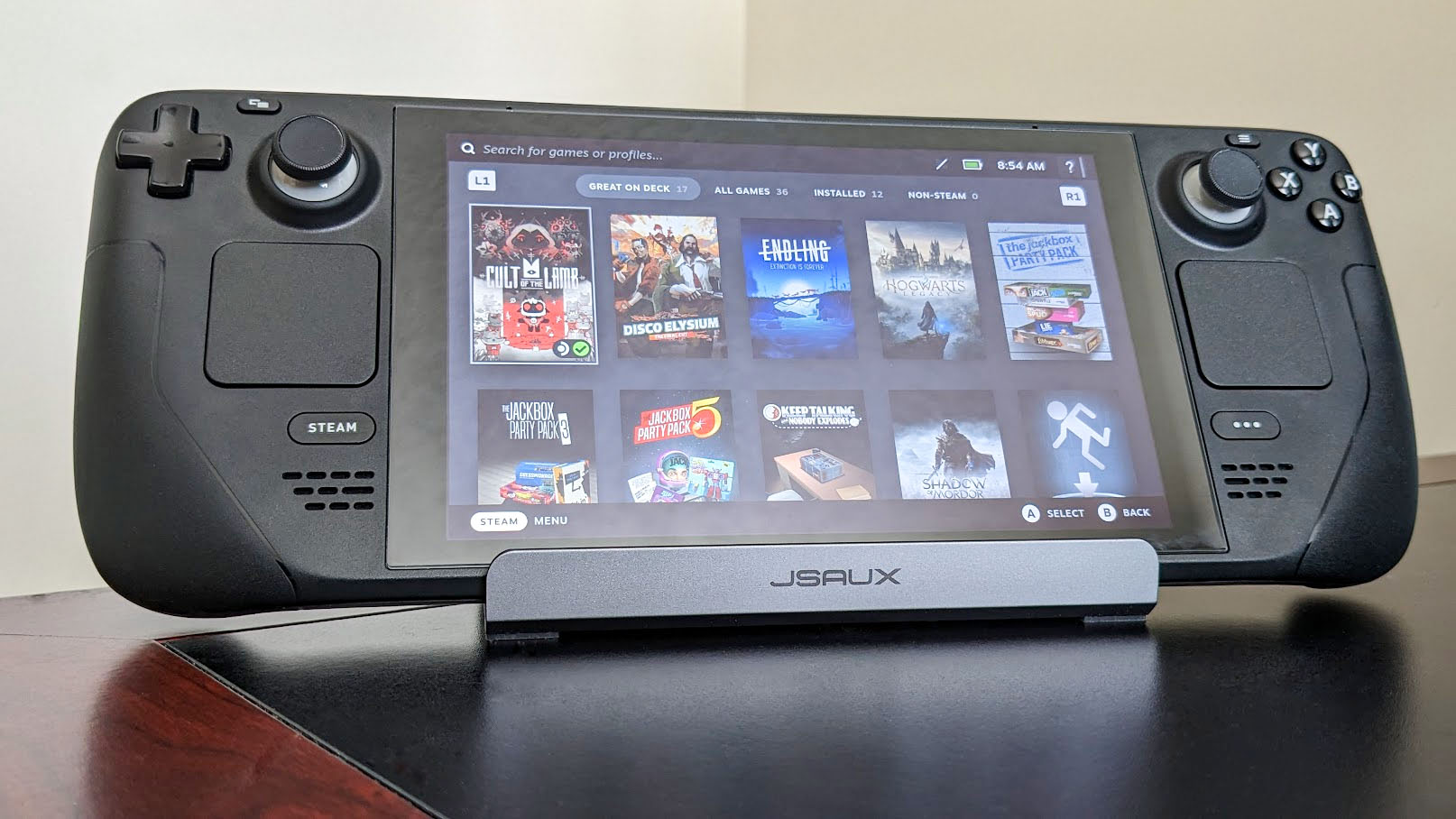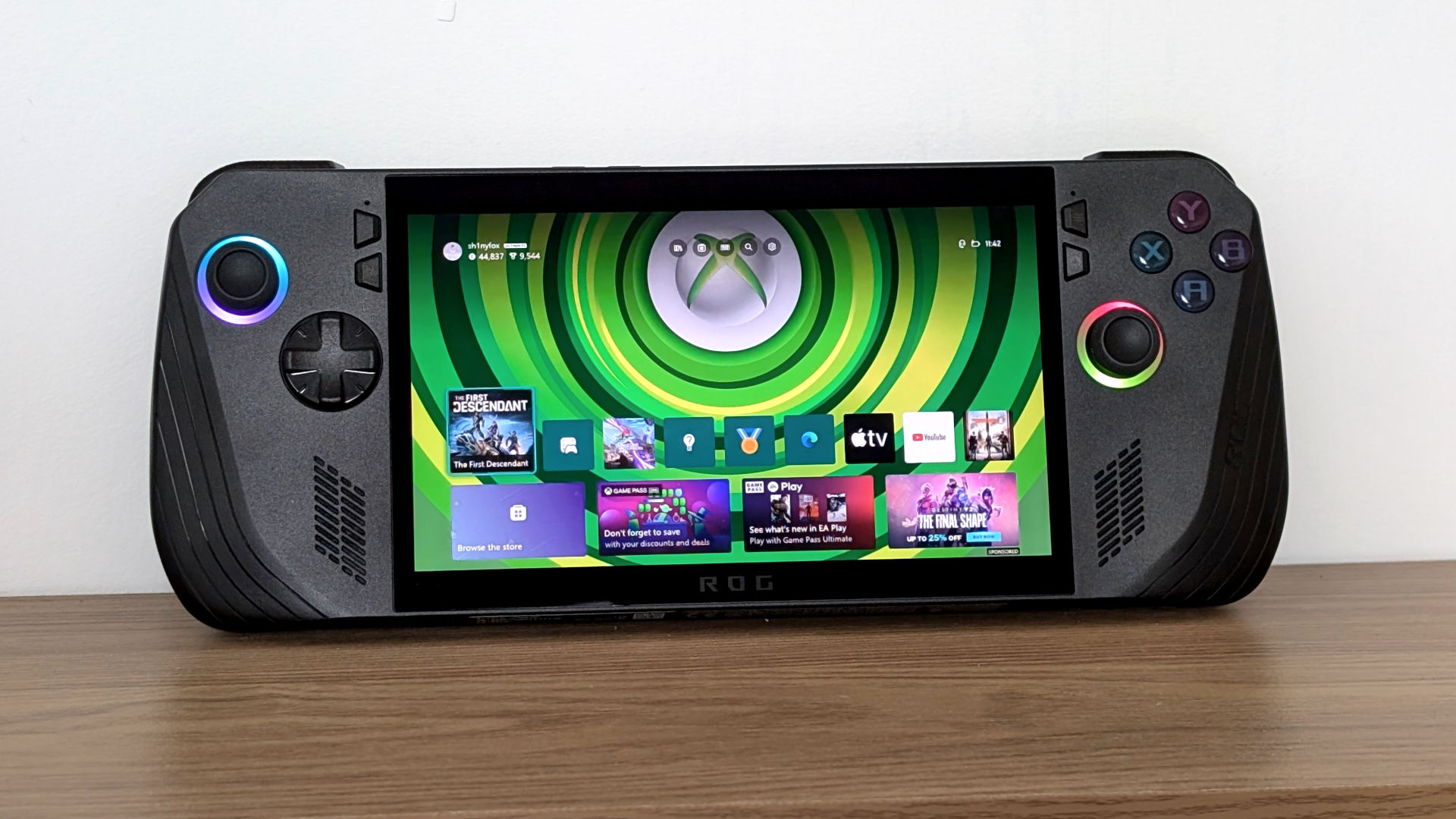
My own time with the brilliant ROG Ally X has sadly come to an end with my review unit going back, but it's certainly left a mark. As a Steam Deck owner from the very earliest weeks, it took until now to finally try a Windows-powered alternative.
The device itself is incredible. The design, the ergonomics, the hardware, and especially the display, all feel like a significant step up from my trusty Steam Deck. But ignoring the price, I still don't think I'd buy one. It has one problem that, unfortunately, ASUS can't overcome by itself, despite the company's best efforts to this point.
The problem is Windows 11. It eliminates a number of shortfalls found on the Steam Deck, but it's just nowhere near as enjoyable to use on this type of small PC right now.
A handheld needs to feel more like a console, less like a PC

The Steam Deck running on SteamOS 3, based on Linux, presents its own issues. Anti-cheat software and the lack of Xbox Game Pass are but two which crop up fairly regularly. And I agree, they're issues that exist and that I wish didn't. But even on Linux, a huge portion of the Steam library is playable on the Steam Deck, and let's face it, that's where most of the PC gamers are, anyway.
Where Steam Deck is leaps and bounds ahead of the ROG Ally X, or the Lenovo Legion Go, is the UI and overall user experience. SteamOS 3 has been built and designed to act like a games console first, PC second. With the Windows machines, it feels like the reverse. Every aspect of the SteamOS UI is easily navigated with the built-in controller, touchpads or the touch display. The ROG Ally X would certainly have benefitted if it had a touchpad.
But I've been complaining about Windows on smaller and touch devices ever since Microsoft killed the Windows 8 UI. We went from a modern, intuitive, touch-friendly interface, to basically jabbing at a desktop. It's rubbish.
I will say that ASUS has done a commendable job working around the problem with Armoury Crate SE. The pop out side panel is very reminiscent of what I'm used to on Steam Deck, and the app itself does a splendid job of collecting up your games and launchers into one easy place. But all too often you're going to end up using a Windows 11 app, or the desktop interface, and it just doesn't feel good.
The Steam Deck is a console, through and through. Yes, it's actually a PC, but the majority of its users will probably never launch into desktop mode. I wish the same were true of a Windows 11 handheld.
🔥Hottest trending deals🔥
- Lenovo Legion Go (512GB) | was
$699.99now $599.99 at Best Buy - Xbox Game Pass Core 12-months | was
$69.09now $42.19 at CD Keys -
Surface Pro Signature Keyboard/Slim Pen 2 | was
$280now $113 at Best Buy
Too much Windows without a dedicated UI to match the small screen

This is a perfect example of my annoyance. Within Armoury Crate, you can select a game to uninstall, as you would do from time to time. Say it's a Game Pass game, does it actually uninstall? No, it launches the Windows 11 settings app, in all its desktop glory, and you have to go find the game there and then uninstall it.
This isn't a good experience for anyone. It's janky, and above all, it takes you out of an app that's been designed for a handheld into one that has not. That's not on ASUS, that's on how Windows has to work. I hate it.
Then there's the setup process. Compared to setting up a Steam Deck, it takes an eternity. Resetting it is even worse. And of course, since it runs Windows 11, there will be constant updates. That's fine, you get regular updates on the Steam Deck, but it's one update with everything wrapped up together. An update that is also done from the handheld-friendly UI. That's a long way away from using Windows Update. If Microsoft allowed the likes of ASUS and Lenovo to build this process into their own software, it'd certainly be a start.
That's my biggest frustration. I can guarantee that companies making these handhelds would make our lives so much better if they were allowed to fundamentally alter how Windows 11 looks and behaves. Since getting familiar with Linux about four years ago, my number one dislike of Windows 11 is that I can't make it look and behave exactly how I want it to. I'm in a minority on that front, but on a handheld, it's absolutely essential.
There should be no need to ever see the desktop or any of the inbox apps in their desktop form on a handheld. If we're going to be forced to use the Settings app and Windows Update, at least make a UI that suits a small, touch display. My sausage fingers trying to tap the tiny 'X' to close an app aren't a good mix.
Remember when Tim Cook, Apple CEO, commented on Microsoft combining a tablet and the desktop on Windows and likened it to combining a toaster and a refrigerator? In that instance, I don't think he could have been more wrong, but the state of play with gaming handhelds right now feels very much like that.
A lot of work to do before any 'Xbox handheld'

Rumors of an Xbox handheld have flown around for a while, but I can't say I'd be terribly excited about one right now. I've spoken to people in the past who want it to be literally a shrunk down console, running the Xbox OS. Even if I can't believe that would be a thing, it would be the best way to go.
If Microsoft is planning a handheld, then I have to hope that a dedicated UI for Windows on these things is a priority. Even with less powerful hardware, no Game Pass, and issues with compatibility, the Steam Deck remains the handheld I would recommend to any person spending their own money. It's just better to live with.
That's a shame, because the ROG Ally X is tremendous. If it ran SteamOS 3 I'd be throwing my wallet at the nearest store I could get one from. The performance is incredible, the display is beautiful, and my word, it's just a joy to hold and play on. But then I had to interact with Windows on it, and there were more times of frustration in my two-week loan period than there should be on a device costing $799.
But it's not ASUS' fault, nor is it their problem to fix alone. Microsoft simply has to step up and support this category with a better overall software experience. Valve is eating their lunch on that front.







